
Stalled Democracy: The Saga of Delayed Elections in Kurdistan
Kurdistan’s overdue parliamentary elections are set to take place on 6 June 2024. Judging by previous election cycles, however, their occurrence relies on a precarious political balancing act, with unpromising prospects. Kurds across Kurdistan have managed to safeguard stability, security, and thriving economies, standing in stark contrast to the mayhem and violence that characterises the wider region. Yet, creating a democratic island amid the turmoil of the Middle East has been profoundly challenging. Democratic elections are one of the key routes to achieving this objective. Introduction More than a centenary has passed since Kurdistan, the homeland of the Kurds, was partitioned. The prospect of an independent Kurdistan followed the collapse of the Ottoman Empire in the aftermath of World War …

Israel’s Strategic Dilemma
Debate in Israel about the government’s strategy in the Gaza war is heating up. While a majority of Israelis still support the war in Gaza, a growing minority are questioning whether continuing the war against Hamas will bring greater security to Israel or stability to the region, arguing that the government’s military campaign will perpetuate a conflict damaging all parties – not least Israelis themselves. Benjamin Netanyahu’s failure to bring home the Israeli hostages has reinforced tensions and doubt among the public. But continuing the war suits the incumbent government, enabling them to remain in power. Paradoxically, it also suits Hamas. Only when a majority of Israelis themselves conclude that the current strategy puts at risk rather than guarantees their …
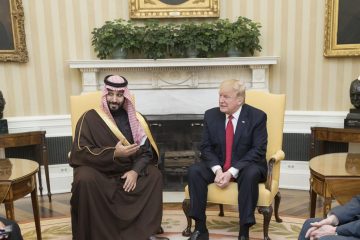
Saudi Arabia’s Game of Thrones: Mohammed bin Salman’s rise to power and its consequences for the region
Following his surprise appointment as crown prince back in June, 32-year-old Saudi prince Mohammed bin Salman al-Saud has been thrust into the spotlight. The events surrounding his rapid rise to power sound like something straight out of Hollywood, involving secretive plots and political intrigue, however, the consequences of his dramatic ascent to power could be very real for Saudi Arabia and the region as a whole. Tensions within the extensive network of royalty have existed for decades, yet, up until recently, have been kept relatively under control. Stability and gradual change were seen as key in maintaining the complicated structures of Saudi Arabian society and politics. In a region wracked by war and turmoil stability and survival were emphasized. This …
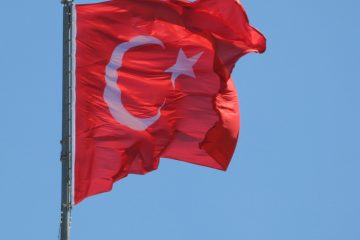
Coup attempt and terror bombings demonstrate Turkish lives don’t matter to Erdoğan and the AKP
Last week’s coup attempt by military forces in Turkey — the military’s first overt attempt to take power since 1980 — came as a great shock to the international community. At least 290 people were killed and 1,440 wounded. The coup also spurred a dramatic wave of purges; less than 24 hours after the turmoil began, 2,839 army members and a member of the constitutional court were arrested, while 2,745 judges and five members of the Supreme Board of Judges and Prosecutors were removed from their posts. The purges only intensified thereafter; within a week, about 60,000 soldiers, police, judges, civil servants and teachers found themselves detained, suspended or under investigation. The government’s rhetoric and consistent inaction, contextualized within its wider response to the …
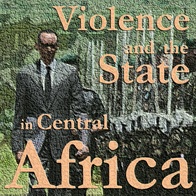
How civil wars end
There is a tendency, even among scholars, to view civil wars as involving two actors—the “government” and “rebels.” This presumption likely arises because historical civil wars that have received the most attention—such as the American and Chinese civil wars—were generally fought between two recognized, organized combatants. Yet, many civil wars (both historical and modern) involve more than two actors.
Take the current civil war in Syria. The Syrian government battles a series of rebel groups that generate a large number of acronyms—ISIS, SLA, SIF, and so on—and that frequently fight amongst themselves. These groups often seek to form coalitions to coordinate their opposition, but the coalitions are unstable and have difficulty controlling their constituent parts. The Syrian conflict also has a large level of external involvement, with the government receiving direct military support from Iran and Hezbollah plus a large number of additional external states and non-state actors seeking to turn the course of the war.
The Syrian opposition’s fragmentation is extreme, but the multiparty nature of the conflict is by no means unique. In fact, many of the wars that have received the most international attention in recent decades—such as in Afghanistan, Columbia, the Democratic Republic of the Congo, Iraq, the Palestinian conflict in Israel, the Darfuri war in Sudan, and Somalia—have involved several rebel groups and significant external involvement.

The End of the Arab Spring
In December 2010, a revolutionary spark in Tunisia initiated what is now referred to as the Arab Spring. Since then, many countries across the broader Middle East have been swept up in uprisings that have led to fundamental shifts in Tunisia, Egypt, Libya, and Yemen. The same drive for change has also led to minor changes in Jordan, Morocco, and elsewhere.
These events have drawn the attention of many regional and international observers, experts, and scholars. In many circles, there was a widespread optimism with respect to the nature and course of the Arab Spring, and some observers held to the domino theory, that is, if one revolution took hold, others would follow. Indeed, these expectations and interpretations have been proven true to some degree. First, the contemporary Arab uprisings were able to put an end to dictators and quasi-dictators in Tunisia, Egypt, Libya, and Yemen, such that the deposed presidents and parts of their cliques were arrested (e.g., Egypt), accused of state crimes and corruption (e.g., Tunisia), or caught and murdered (Libya). Second, these events put these countries on a path toward political transformation. In this way, we have seen in the major Spring-nations the establishment of new political parties and elections. Due to the modification of whole regimes, these states have completed successful transitions; a significant first step toward democratization.
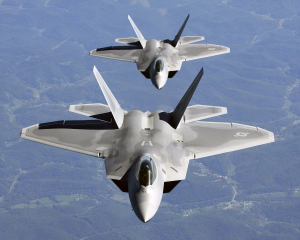
The legality of military action in Syria: humanitarian intervention and the responsibility to protect
It now seems fairly clear that the US and the UK are set to take military action in Syria in the coming days in response to the recent chemical attacks there. The UK Prime Minister, UK Foreign Secretary and the UK Secretary of State for Defence have all asserted that any action taken in Syria will be lawful. But on what grounds will military action in Syria be lawful. As is well known, United Nations Charter prohibits the use of force in Art. 2(4), as does customary international law. The UN Charter provides 2 clear exceptions to the prohibition of the use of force: self defence and authorization by the UN Security Council. It is almost certain that there will be no Security Council authorization. In a previous post, I considered the possibility of a (collective) self defence justification for the use of force in response to a use of chemical weapons. The scenario contemplated then is very different from the situation that has emerged, and the language used, at least by the UK, does not hint at a use of force on the basis of national interest. However, President Obama in a CNN interview last week did seem to speak of self defence when he said “there is no doubt that when you start seeing chemical weapons used on a large scale … that starts getting to some core national interests that the United States has, both in terms of us making sure that weapons of mass destruction are not proliferating, as well as needing to protect our allies, our bases in the region.” A justification for force on this basis would sound like preemptive self defence in a way that is very close to the Bush doctrine. I find it hard to see the Obama administration articulating a legal doctrine of preemptive self defence claim in this scenario.
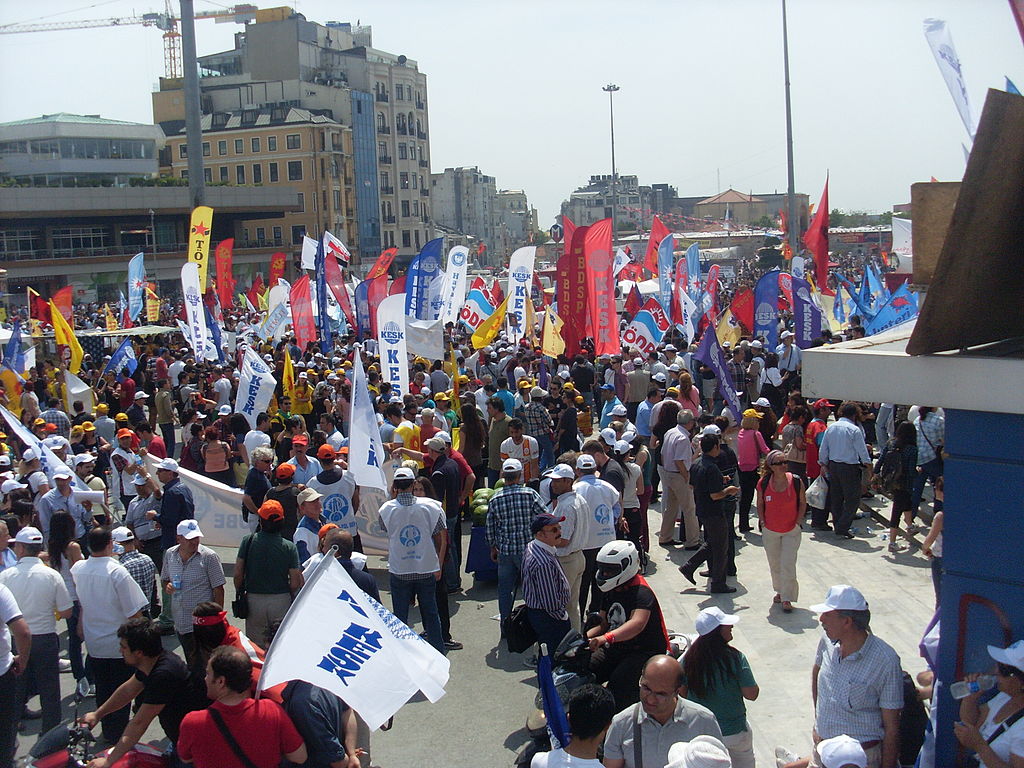
After the Protests: Time for a new politics in Turkey
The balance sheet after three weeks of protests and police violence in Turkey is grim: four people were killed, more than 7,000 wounded, 11 lost their eyesight and several hundred detained. What began as a localised protest over a shopping centre and the demolition of the Gezi Park in Istanbul’s central Taksim Square turned into a nationwide conflagration in response to the inciting rhetoric of Prime Minister Recep Tayyip Erdoğan and the unfettered police brutality unleashed upon peaceful protestors. The image of German Green Party Chairwoman Claudia Roth, barely able to speak following a teargas attack on her hotel next to the Gezi Park, will come to haunt Turkey’s political elites for years to come.
It is hence not surprising that a significant portion of Turkey’s society, which also feels unrepresented by the infighting-plagued main opposition party, was ready to go to the streets, when the initial protests over the shopping centre were brutally repressed.









